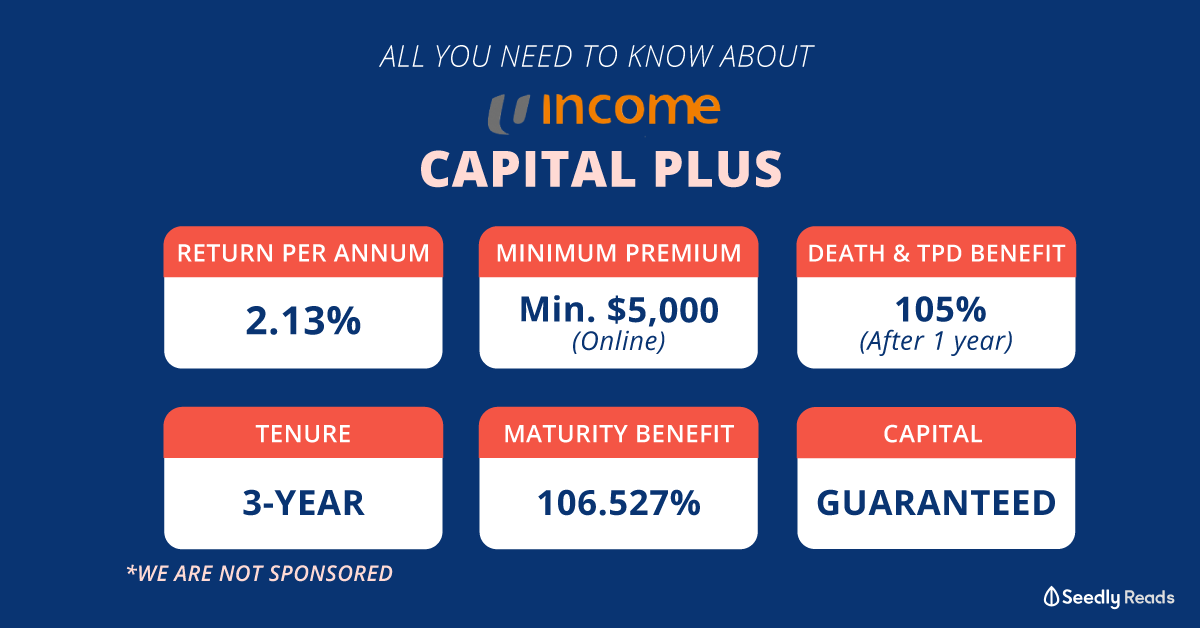Advertisement
Anonymous
I have coverage for TPD. do u think its necessary for me to get accident and disability income plan?
3
Discussion (3)
Learn how to style your text
Reply
Save
Elijah Lee
22 Jul 2022
Senior Financial Services Manager at Phillip Securities (Jurong East)
Hi anon,
TPD coverage is very different from personal accident and disability income.
TPD coverage as an example will be
The Life Assured has suffered total and irrecoverable:
a. Loss of the sight of both eyes;
b. Loss of sight of one eye and loss by severance or loss of use of one limb at or above the ankle or wrist; or
c. Loss by severance or loss of use of:
i. Both hands at or above the wrists;
ii. Both feet at or above the ankles;
or iii. One hand at or above the wrist and one foot at or above the ankle.
On top of that, TPD will cover you if you have been disabled in a total and permanent fashion with an inability to work in any job permanently to earn an income.
And lastly, TPD does cover you if you are unable to perform 3/6 of the activities of daily living (ADL). Some insurers also cover for the inability to do 2/6 ADLs, but that varies from insurer to insurer, and there is a cut off date whereby this coverage will no longer be valid.
So now that you know what you're covered for, then you need to know what an accident plan covers.
Accident plans cover death by accident. But unless you are specifically worried about dying in an accident, most people don't get an accident plan to cover death. (If you are worried about dying, you should be worried about dying from anything, not specifically an accident) Most people get an accident plan to cover for the minor mishaps in life, for like falling down, twisting an ankle, and needing TCM treatment. Or getting into a minor accident and having an outpatient A&E bill that can't be claimed on your shield plan.
Since accidents can happen to anyone, you can consider an accident plan. I won't say its necessary, but accident plans also do not cost too much for a simple no-frills plan, so it could fit into your budget.
Lastly, Disability Income (DI) insurance is meant for cover during your active employment years and is used to mitigate loss of income if you become unable to perform the material duties of your occupation.
So you'll have to suffer from loss of income first, and also prove that you suffered that loss due to being unable to perform the material duties of your job. This may not be so straightforward or easy. For example, an office based employee diagnosed with early stage cancer may find it hard to claim on DI as it doesn't actually stop him/her from being able to do their job.
DI insurance is probably more useful for certain occupations or people. For example, people with niche or specialised skills that are not easily replaceable by anyone. A surgeon who had a hand injury might no longer be able to perform operations. He may still work as a consultant, but he will suffer a loss of income since a surgeon would earn more. In such a situation, DI insurance would come in useful.
So you should consider what you are working as, in order to determine whether DI insurance would be a useful risk management product.
Hope that clarifies.
Reply
Save
Jun Xi
20 Jul 2022
Financial Advisor at Great Eastern Life
Hi,
If you look at the definition of TPD, it refers to the state of incapacity in the form of a ...
Read 1 other comments with a Seedly account
You will also enjoy exclusive benefits and get access to members only features.
Sign up or login with an email here
Write your thoughts
Related Articles
Related Posts
Related Posts
Advertisement








TPD coverage expires at age 60/70 for most plans. So if you're concerned about long term disability in old age, you should be get disability income coverage. if you are a Singaporean/PR, you are covered under Careshield life, you can read more here https://plannerbee.co/learn-personal-finance/al...